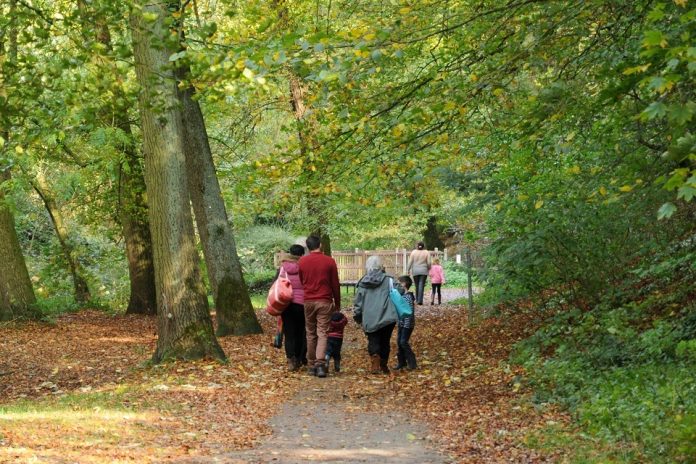Natural England’s new People and Nature Survey has revealed that during April-June 2020, almost nine in 10 adults in England reported that protection of the environment is important to them personally. Nearly three quarters of adults were concerned about biodiversity loss in England.
The nation’s gardens, parks, woodlands and rivers have played a huge part in helping us all through the coronavirus pandemic, with almost nine in 10 of adults in England reporting that being in nature makes them very happy. Four in 10 adults reported spending more time in nature than before the coronavirus pandemic, with health and wellbeing being amongst the main reasons for getting outside.
However, the research indicates clear inequalities in opportunity for engagement with nature. Some adults were not getting outside very often (if at all) with one in three not visiting a natural space in a two-week period, and one in five adults not having visited nature in a month.
The research also shows how important local parks and green spaces are to the nation’s mental and physical wellbeing, with urban green space (such as a park, field or playground) being the most frequently visited natural environments.
Marian Spain, Chief Executive of Natural England, said:
These new official statistics show just how crucial it is to invest in a green recovery. There’s huge public concern about the well documented threats to wildlife and a clear case to invest in nature-rich spaces close to where people live and work to help the nation recover from the coronavirus pandemic.
This wealth of evidence leaves no doubt about the importance of connecting with nature is for our physical health and our mental wellbeing. It’s vital that the whole of our society has access to these benefits. If we don’t tackle this we cannot claim to have an equitable green recovery.
We look forward to working with the government to reverse nature’s decline and ensure that everyone – no matter their background or life experience – can benefit from a better natural environment.
The official statistics show that socio-economic status is related to access to natural spaces – you are less likely to have visited a natural space if you are living in an area of high deprivation, have a low income, have a low level of education, or are not working. Older people, people from minority ethnic groups and those with a long-term illness or condition were less likely to have visited a natural space.
There are also regional differences, with 66% of adults who live in the South East visiting nature in a 14 days period (highest) compared with 52% who live in the West Midlands (lowest). There is also some evidence that COVID-19 has exacerbated pre-existing inequalities in access to natural space.
Natural England is committed to promoting health and wellbeing through the natural environment, helping more people from a wider cross-section of society benefit directly from the environment. It is currently delivering the government’s Children And Nature programme to improve the physical and mental wellbeing of children from disadvantaged backgrounds. This includes delivering green school grounds, supporting pupil visits to green spaces and improving woodland outreach activities. It is also supporting the government’s new two-year pilot to bring green prescribing to four urban and rural areas that have been hit the hardest by coronavirus.







